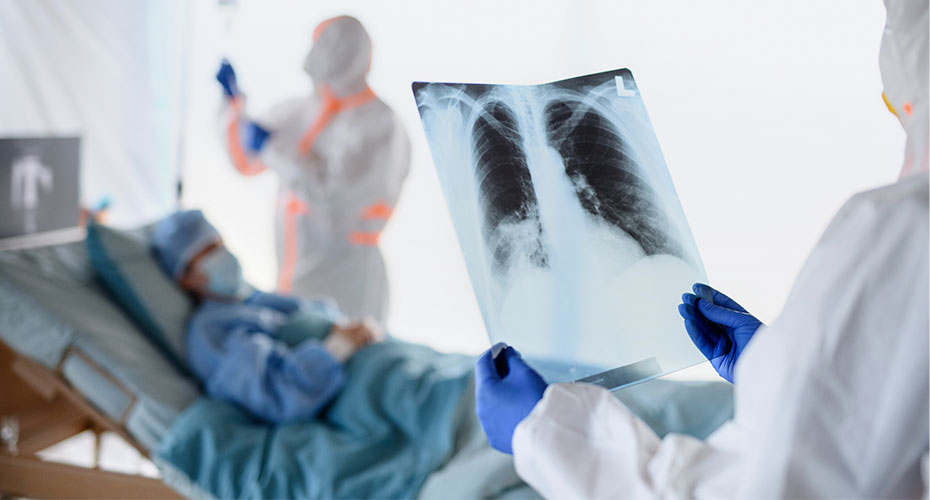Dec 8, 2020
‘The virus—it’s the real deal’
In mid-March, Bob Bridge got sick with what he thought was a stomach bug.
After “throwing up for two weeks straight,” experiencing a low-grade fever, and “shuffle-stepping around” like a man decades older, the 50-year-old Indiana resident and Blue Cross Blue Shield of Massachusetts member called his doctor, who told him to go to the emergency room for IV fluids to prevent dehydration. “I felt like I was doing 10,000 sit-ups a day my stomach was so sore,” he recalls.

Bridge received fluids, and the ER doctors sent him home. They didn’t test him for COVID because he didn’t have symptoms that fit the profile of the disease at the time.
But four days later, Bridge recalls, he felt so terrible he went back to the ER, where he stayed for three days. A chest X-ray showed pneumonia in his right lung, and this time, doctors tested him for COVID. The test came back positive.
“I felt like I was in a bioterrorism movie,” Bridge said of his second stay in the hospital. “Nurses would ‘gown up’ before coming into my room and wore PPE” from head to toe.
After discharge, Bridge quarantined at home for 14 days. His wife, who wasn't allowed to stay with him in the hospital, spiked a fever and began experiencing respiratory symptoms that lasted for two weeks. She was never tested for COVID, but the couple believes she had it too.
To this day, Bridge still doesn’t know where he contracted the virus. “I had been traveling a lot at the beginning of the year,” he said. “But none of the other people I was traveling with and met with got sick.”
Gratitude for caregivers
Months after his ordeal, Bridge said he is tremendously grateful for the care he received while he was in the hospital: “The quality of care I got was fantastic. At that time, we didn’t really know what we were dealing with, and the doctors and nurses didn’t know the risks they were facing. They were right in the middle of it.”
Bridge said he received a bill for a few hundred dollars for his hospital stay and thought, “For a hospital stay, that’s not so bad. I should thank God I have good health insurance.”
Then he received a call in August from Blue Cross Blue Shield of Massachusetts’ Rachel McCormack. “I thought, ‘Oh great, I owe them more money,’ but instead, Rachel told me I was going to get money back” because Blue Cross is covering all COVID-related testing and treatment.
Bridge couldn’t believe his good fortune: “I laughed,” he recalls. “I said, ‘Here I am waiting for you to tell me I owe you more money, and you’re telling me you’re going to send me a check?’”
A patient’s perspective
While Bridge said he is mostly feeling like his old self now, he continues to experience shortness of breath and will be going in for a pulmonary function test this week.
“The virus, it’s the real deal,” Bridge says, looking back on his experience, as infection rates spike across the country and with new vaccines still months away from availability to the general public.
“We should take necessary precautions,” he added, explaining that he wears a face mask in public, practices social distancing and is particularly careful around his parents and in-laws. “We do have to protect folks who are in that danger area, but we also need to go on with our lives.”
More stories from COVID-19 survivors:
“This ordeal definitely gave me a renewed passion for wearing masks and social distancing."
- Kristin Jahne
Read her story here.

